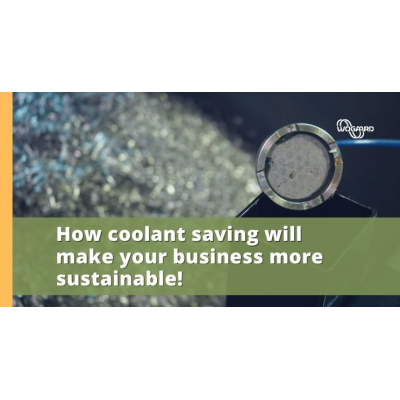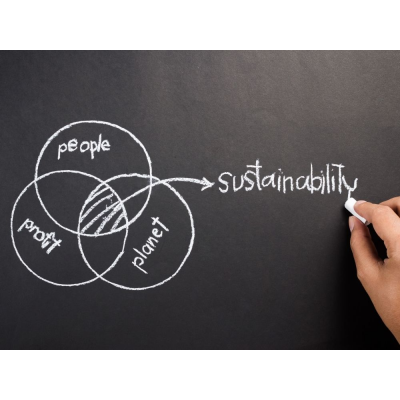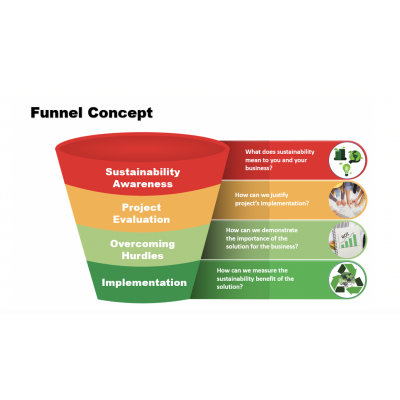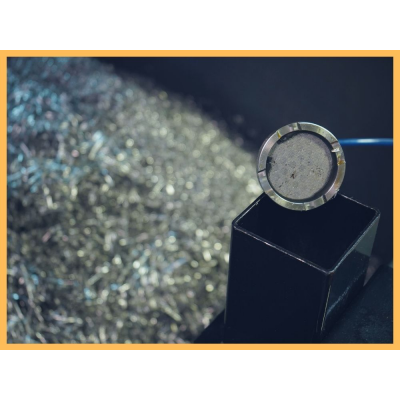
Hi, I am Jason Hutt from Wogaard limited, who provide oil and coolant saving solutions. Sustainability is a focus for Wogaard and I would like to run through one of the areas highlighted on a previous blog about achieving sustainability goals in manufacturing in bite sized steps.
As we step climb the staircase to achieve these, I want to discuss to you about the number one challenge for implementing new ideas. That topic could be called mindset, and how we can be sceptical to resist change or new ideas, but I guess we see this in all types of projects.
I initially thought, where is it best to start? and of course, our own coolant saver product, how we approach manufacturing facilities and observe initial mindsets could be a great example, followed by the process or trialling our products showing the fantastic cost savings along with the environmental benefits. To expand on this, we have plenty of case studies and testimonials from our customers, many of them available on our website, YouTube and social media channels.
If I take a step back, I remember discussing this further with my colleague Christian Woergaard regarding his experience when starting with a new project idea, going through the motions and facing resistance from team members and other stakeholders who may not be open so open to innovation. At this point he shared the story of how Wogaard started…

Over 10 years ago, Christian was working on setting up a business when his father Preben came to him with an idea. At the time Preben was working at a medium sized subcontractor in charge of managing consumables such as tooling and cutting fluids. He had noticed how much cutting fluid was being disposed every year, which was quite a costly affair.
The following step was to identify where all this cutting fluid was coming from. Turns out it was from the chip bins. Underneath every pile of swarf there was a considerable amount of perfectly good cutting fluid that had been disposed of for no reason.
Preben came back to his son Christian with the idea of collecting the liquid from the bins and proposed making a business out of it. I am sure you or a colleague of yours have also had the experience of observing a problem on the shop floor and taking the issue to the manager or talking to a relevant supplier about the issue.
This is where I want to make the first point that someone else's idea really sounds as good as your own. There are a number of psychological factors to blame for this phenomenon and I will not go into the details, but we need to be aware of the bias that exists in these situations, as it can be a hindrance to progress and innovation in an organisation.
Considering Christian's background as a machinist, he should have seen the potential immediately when his dad suggested collecting the cutting fluid from the bins, the first coolant saving solution. Christian's apprentice years had been lugging around his share of swarf bins, and thinking about it, the swarf was always covered with cutting fluids at the bottom. There could have been 50 litres in there without anyone ever knowing and as part of his background knowledge he could not see the idea, he just did not think it was that big a deal.
This brings me to the next point, to think you know, is a mistake. We do this all the time!
So, how do we mitigate this issue in a simple and easy manner without resorting to attempts to change our behaviour?

coolant saving sustainability
Well, instead of dismissing an idea on the base of intuition, it would be better if we had an easy step by step approach to qualify new ideas, allowing the decision-making process to be more objective and factual. Back to the story…
Preben kept pushing his cutting fluid collection idea to his son Christian, and had it not been for their existing family relation, Christian would probably have hung up the phone and told them not to call back. After a while Christian gave in though and told his father to perform some tests to see if there was any reason to bother with this at all. An excel sheet was developed and Preben filled in the volume of cutting fluid he could collect from the bin in a single shift.
A couple of days later, he returned the sheet and the numbers seemed to confirm Christian’s suspicion. In a single shift, he had collected a few litres of cutting fluid. Christian resisted the immediate urge of caught out to say I told you so and proceeded to add the data to the spreadsheet.
Well, for a subcontractor that was running 24 hours a day, five days a week, they had 20 plus machines. Now, this is where the results were really surprising. Based on this initial analysis, appeared that they were throwing out some 70 litres every 24 hours at a 6% mix. They were using an entire drum of concentrated oil every 35 days along with 3100 litres of water. On top of this, they were paying for the disposal of all the liquid. So why not present a coolant saving solution?
The next point is understanding a concept does not mean you see the scale or impact of it. Make sure you do the entire calculation and see the accumulated impact of the initiative. We have designed a useful and easy to follow process that you can access by joining our sustainability platform.

coolant saving funnel
- Examine the ideas while being aware of your bias upon initial contact with the idea.
- Evaluate environmentally first. List benefits and compare your organisation’s commitment to sustainability. Does it make sense?
- Grade the initiative on its environmental benefits. If this was absolutely free to do, you would do it, but at what price does that attitude change and why?
- Measure the financial benefits. Classic cost benefit. Conduct a small scale pilot experiment to support the case.
- Input numbers in Excel and analyze. Payback time?
- Factor in the environmetal side to the financial side and NOW make a decision.
We are not trying to make a perfect model for everyone, but we are making the case of establishing a systematic structured approach to working with sustainable ideas and ensuring the environmental side is accounted for, as it is often left out of classical cost benefit analysis.
As our passion drives towards sustainability and coolant saving solutions, we want to open the forum to create a platform that works as a knowledge base for sustainability. We know there is so much knowledge out there, therefore we wish to create a hub involving our technical partners across the industry.
Thank you for your time reading and listening!

coolant saving Wogaard